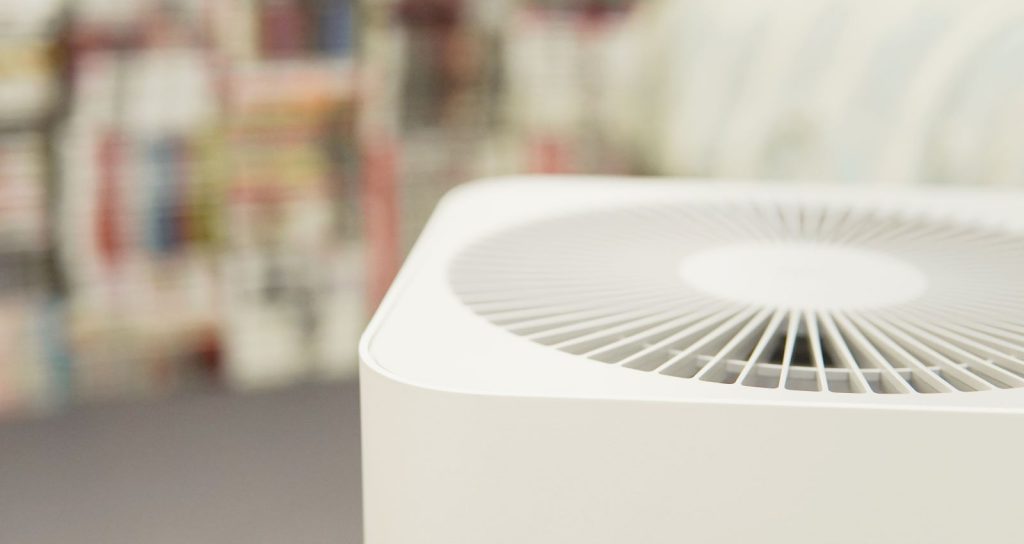Now more than ever, keeping your family safe and healthy is a top priority. So, have you considered the importance of your indoor air quality? Healthy habits start at home, and you can make sure your HVAC is keeping you safe with a quick read on the types of air filters. Your perfect air filter depends on your filtration needs and your budget, so here’s a quick guide to lead you through the process of picking the best air filter for your home.
It’s important to know that air filters are evaluated on a numerical scale of Minimum Efficiency Reporting Value, or MERV. This number will help you make sense of each filter’s capabilities when it comes to purifying your air. The scale ranges from one to 16, with ratings closer to 16 filtering more particles in the air. Most home filters fall between four to 13 MERV.
The main difference between filters with different MERV ratings are material and thickness. Choosing the right filter not only means considering how many contaminants are filtered and the budget you have to work with, but also what is appropriate for your HVAC to run at maximum efficiency.
Spun Fiberglass Filters
Starting with the least expensive option, spun fiberglass filters typically range from one to four MERV. They’re inexpensive and disposable, perfect for constant replacement to keep contaminants out of your system. These are made more for protecting your HVAC, since they prevent most particles over 50 microns (think dust and dirt particles) but only catch 25% of particles smaller than 10 microns.
Think of this as your entry level air filter- it does just enough to keep larger dirt particles out of your system and air, but it does not catch the finer particles that could affect your health, like pollen and other allergens.
Pleated Paper/Polyester Filters
These mid-range filters grab more than their spun fiberglass counterparts, but at a slightly higher cost. Usually five to eight MERV, they catch more particles, especially the smaller ones. Pleated paper or polyester filters can prevent 80-95% of particles larger than five microns from circulating in your home. While they tend to be four times more expensive than spun fiberglass filters, the price jump matches the increase in quality.
Electrostatic Filters
With these filters, you have two options- disposable and pleated or washable and flat. The disposable pleated ones are normally between two to 10 MERV, while the washable flat ones are typically four to 10 MERV. Both filters work with self-charging fibers that attract particles in the air and trap them in the fabric.
The main difference is the disposable vs. reusable feature. Disposable filters are a sure-fire way to rid your house of particle buildup in filters, since they are thrown away along with the trapped particles. On the other hand, washable filters can last up to eight years with proper maintenance, but they do require some effort for upkeep.
Disposable Pleated High MERV Filters
The disposable high MERV filters are at a higher price point and trickier to install, but they trap almost all of the particles in the air, including some bacteria. The filters last about a year, with proper installation and care, and range from 11 to 13 MERV. They are a bit more difficult to install, since their size needs to be compatible with the measurements of your system. However, they improve your indoor air quality tremendously. These high-efficiency filters can trap small particles, including 0.3 micron contaminants, like bacteria and viruses.
High-Efficiency Particulate Arrestance Filters (HEPA)
If you’re looking for the best filtration out there, these HEPA filters are for you. They provide hospital-grade filtration to prevent dangerous particles from circulating through your house, and they keep your whole HVAC, including your furnace, in tip-top shape.
HEPA filters work in a three-step process, with air first passing through a pre-filter, then the HEPA filter for further air refinement and finally a charcoal or carbon filter to neutralize odors and chemicals. These are the most effective filters you could have, with typical ratings of 16 MERV and the ability to filter out particles as small as 0.3 microns, just like the disposable high MERV filters.
With the right air filter, you can keep your family safe and protect your furnace from harmful particles. While these different filters meet various standards and requirements, a filter is only as good as its maintenance. Make sure to replace filters as recommended to get the most out of your HVAC protection and indoor air quality. Still have questions? Contact us and we’d be happy to help you choose the right filter for your home!

